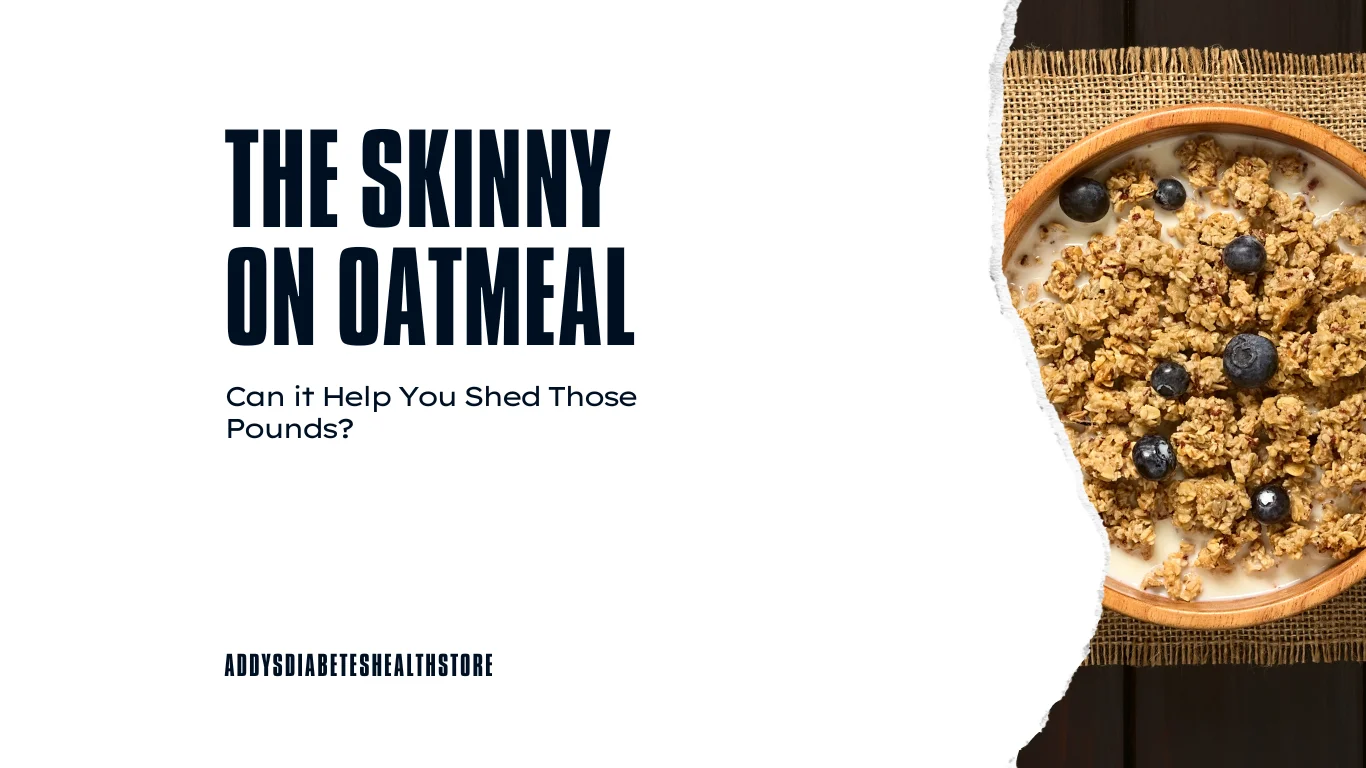The Skinny on Oatmeal: Can It Help You Shed Those Pounds?

In the world of breakfast foods, few options are as comforting and versatile as oatmeal. Whether you prefer it hot, cold, or soaked overnight, oatmeal has earned its reputation as a nutritional powerhouse. But for those of us striving to shed a few pounds, the burning question remains: Is oatmeal truly a friend in our weight loss journey? Let’s dig deeper and uncover what the experts have to say.
Exploring Oatmeal’s Weight Loss Potential
When it comes to navigating the maze of weight loss foods, oatmeal emerges as a strong contender. According to Linda Nikolakopoulos, RD, from Nutritious Measures, oatmeal packs a punch in the health department. “Oats are whole grains, rich in fiber, which keeps the digestive system running smoothly,” she explains. And smooth sailing in the digestive department means less likelihood of feeling hungry shortly after your morning meal.
Kristin Kirkpatrick, RD, from Cleveland Clinic, echoes these sentiments, highlighting oatmeal’s role in heart health and digestion. Loaded with beta-glucan, a soluble fiber known to lower cholesterol and improve gut health, oatmeal stands as a champion among breakfast options.
Unpacking Oatmeal’s Nutritional Value
Let’s take a closer look at oatmeal’s nutritional profile. A typical cup of rolled oats delivers approximately 307 calories, 54 grams of carbs, 10 grams of fiber, and 10 grams of protein. Not too shabby for a morning meal! Its fiber content, in particular, makes oatmeal a filling and satisfying choice, keeping hunger pangs at bay throughout the day.
The Skinny on Oatmeal’s Weight Loss Benefits
Oatmeal isn’t just a tasty breakfast option; it may also be a secret weapon in your weight loss arsenal. According to Nikolakopoulos, “Oatmeal promotes fullness and satiety, preventing the urge for snacking between meals.” The beta-glucan fiber found in oatmeal slows down digestion, keeping you feeling satisfied for longer periods.
Research suggests that incorporating oatmeal into your diet may lead to reductions in LDL cholesterol levels, waist circumference, and BMI. These findings support the notion that oatmeal can indeed be a valuable tool for weight loss.
Making Oatmeal Work for You
To harness oatmeal’s weight loss potential, consider opting for steel-cut or rolled oats over instant varieties. These less processed options offer superior nutrient profiles and greater satiety. Get creative with toppings like fresh fruit and nuts to enhance flavor without compromising your calorie count.
Portion control is key when incorporating oatmeal into your weight loss plan. Be mindful of serving sizes and avoid excessive toppings that may add unwanted calories. Embrace oatmeal’s versatility by incorporating it into recipes beyond the breakfast bowl, such as pancakes or muffins.
In Conclusion
Oatmeal isn’t just a breakfast staple; it’s a nutritional powerhouse that can support your weight loss goals. With its high fiber content, heart-healthy properties, and versatility, oatmeal offers a delicious and satisfying way to kickstart your day and keep you on track towards your weight loss aspirations. So go ahead, savor that bowl of oats guilt-free, knowing that you’re nourishing your body and inching closer to your wellness goals, one spoonful at a time.
FAQ
1. Is oatmeal a good choice for weight loss?
- Yes, oatmeal can be a beneficial addition to your weight loss journey. Its high fiber content promotes feelings of fullness and helps control appetite, making it easier to stick to your calorie goals throughout the day.
2. How does oatmeal contribute to weight loss?
- Oatmeal contains beta-glucan fiber, which slows down digestion and promotes satiety. This helps you feel fuller for longer periods, reducing the likelihood of overeating or snacking between meals.
3. What are the health benefits of oatmeal?
- Oatmeal offers numerous health benefits, including improved heart health, better digestion, and potential reductions in LDL cholesterol levels, waist circumference, and BMI. Its soluble fiber content also supports gut health and may lower the risk of type 2 diabetes and certain cancers.
4. What is the nutritional value of oatmeal?
- A typical cup of rolled oats provides around 307 calories, 54 grams of carbs, 10 grams of fiber, and 10 grams of protein. Oatmeal is also rich in essential nutrients like iron, phosphorous, and manganese, making it a nourishing option for breakfast.
5. Are there different types of oatmeal that are better for weight loss?
- Steel-cut or rolled oats are generally considered better options for weight loss compared to instant varieties. These less processed oats have a lower glycemic index and provide more sustained energy, helping you feel full for longer.
6. How can I make oatmeal more flavorful without adding excess calories?
- You can enhance the flavor of oatmeal without increasing calories by adding toppings like fresh fruit, nuts, seeds, or spices such as cinnamon or nutmeg. Avoid adding excessive sugars or syrups, and opt for natural sweeteners like honey or maple syrup in moderation.
7. Can oatmeal be incorporated into recipes other than breakfast bowls?
- Absolutely! Oatmeal can be used in a variety of recipes, including pancakes, muffins, cookies, and even savory dishes like oat risotto or oatmeal-based soups. Experiment with different recipes to find creative ways to incorporate oatmeal into your meals throughout the day.
8. Is portion control important when consuming oatmeal for weight loss?
- Yes, portion control is key when including oatmeal in your weight loss plan. Be mindful of serving sizes and avoid adding excessive toppings that may contribute to higher calorie intake. Using measuring cups or spoons can help you control portion sizes effectively.
